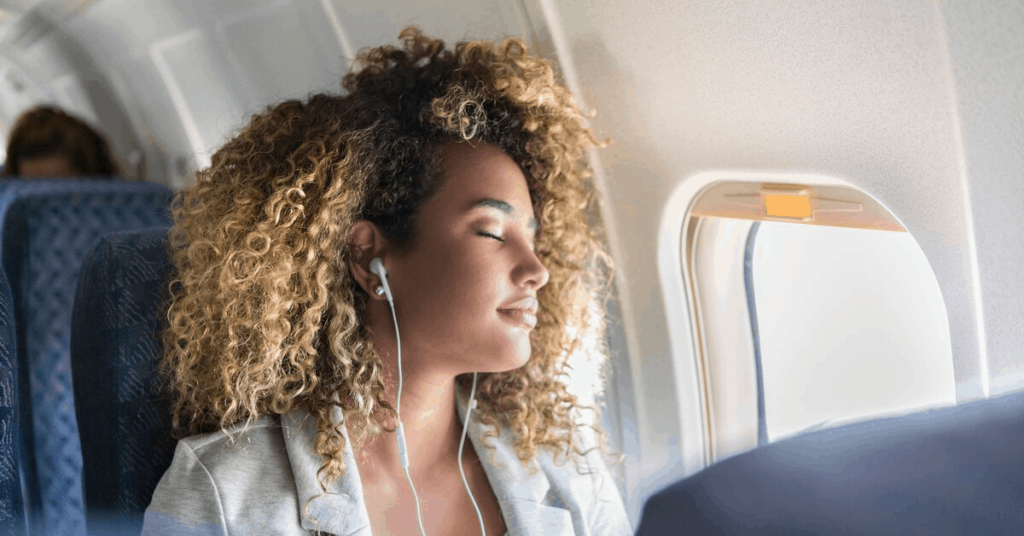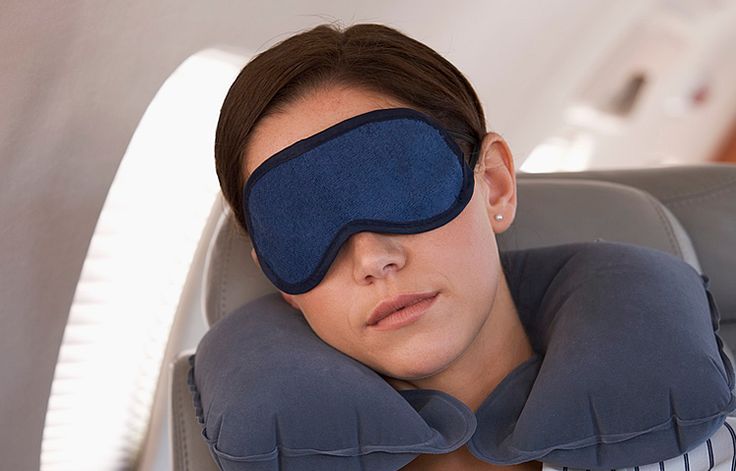Sleep is an essential component of your overall well-being, influencing not only physical health but also mental and emotional states. A good night’s sleep can rejuvenate the body and mind, enhancing your ability to tackle the challenges of a new day.
However, when it comes to frequent travellers, the quest for a restful night’s sleep can be particularly challenging. The disruption of sleep patterns due to time zone changes, unfamiliar surroundings, and the constant on-the-go nature of travel can leave even the most seasoned adventurers longing for a solid night’s rest.
Manage Noise and Light

Managing noise and light is pivotal for a peaceful night’s sleep while on the road. Disruptions caused by excessive noise and unwanted light can be particularly challenging in unfamiliar environments. Earplugs, white noise machines, and noise-cancelling headphones can be your allies in combating intrusive sounds, ensuring a quieter sleeping atmosphere.
When it comes to travelling, one indispensable accessory you should never forget to pack is a soothing and skin-loving eye cover for sleeping. These small yet mighty sleep aids are your key to ensuring a peaceful and restful night’s sleep in a world of unfamiliar and often unpredictable sleeping environments.
Sleep eye masks are designed to block out external light sources effectively. This is especially valuable in unfamiliar sleeping environments, such as hotel rooms with bright streetlights or early morning sunlight. By creating a cocoon of total darkness around your eyes, eye covers signal to your brain that it’s time to sleep, facilitating quicker and deeper rest.
Moreover, these masks also play a crucial role in enhancing the production of melatonin, a hormone that regulates sleep. By effectively blocking out light, they help boost your body’s natural melatonin production, aiding in the synchronisation of your internal body clock with the local time zone.
With that in mind, you should invest in a luxurious eye cover for sleeping to block out external light sources effectively. Since not all eye covers are created equal, choosing the right material is crucial. Silk stands out as a popular choice, cherished for its gentle touch against the skin. It’s not only incredibly comfortable but also hypoallergenic, making it an excellent option for individuals with sensitive skin or allergies.
Alternatively, you can opt for cotton, a breathable and easy-to-clean material that offers both comfort and affordability. Some eye covers go a step further by featuring memory foam, which conforms to the contours of your face. This unique attribute provides a snug, light-blocking fit, enhancing your overall comfort during sleep.
Adjust to Local Time
Adjusting to the local time at your travel destination is a fundamental strategy to combat the sleep disruptions that often accompany long journeys and crossing time zones. It’s a process that helps synchronise your internal body clock with the local day-night cycle, mitigating the effects of jet lag.
Upon arrival, make a conscious effort to align your activities with the new time zone. This includes eating meals, going to bed, and waking up per local schedules. Exposing yourself to natural light during the day can be especially beneficial, as it signals your body to produce melatonin at the right times, regulating your sleep-wake cycle and aiding in a smoother transition.
Limit Caffeine and Alcohol
Limiting caffeine and alcohol intake is a vital strategy to safeguard your sleep quality while travelling. Both substances can disrupt your sleep patterns and should be consumed in moderation, particularly close to bedtime.
Caffeine, found in coffee, tea, and many energy drinks, is a stimulant that can keep you awake and alert. Alcohol, while initially sedating, can lead to disrupted, fragmented sleep patterns later in the night. To ensure a more restful sleep during your travels, it’s wise to avoid caffeine and alcohol in the hours leading up to bedtime. Opt for calming herbal teas or water instead, allowing you to embrace the dreamy world of sleep more easily.
Avoid Heavy Meals Before Bed
Avoiding heavy meals before bedtime is another helpful tip for promoting better sleep while travelling. Large, rich meals right before sleep can lead to discomfort, indigestion, and even insomnia. Instead, opt for lighter, easily digestible dinners a few hours before bedtime.
This approach can prevent your body from working hard to process food when it should be winding down. Lighter meals can help create better opportunities for restful sleep, enabling you to enjoy your travels without the discomfort of heavy, late-night feasts.
Minimise Screen Time
Minimising screen time before bedtime is crucial for quality sleep, especially when travelling. The emission of blue light by screens hinders the production of melatonin, which can lead to increased difficulty in falling asleep. Screens also keep your mind active when it should be winding down because of the engaging content and notifications. To improve your sleep while on the road, it’s wise to set a digital curfew an hour or so before bedtime. Instead, read a book, listen to soothing music, or engage in relaxing activities to prepare your mind for a refreshing night’s sleep.
Create a Bedtime Routine

Establishing a bedtime routine is a powerful tool to enhance sleep quality during your travels. This ritual sends signals to your body that it’s time to wind down and prepare for rest, regardless of where you are. Whether it’s reading a few chapters of a book, taking a warm bath, practising relaxation techniques, or simply dimming the lights, a consistent pre-sleep routine can help calm your mind and create a sense of familiarity in unfamiliar surroundings. Over time, your body will learn to associate these cues with sleep, making it easier to achieve restorative slumber even in the most unconventional places.
Choose Accommodations Wisely
Selecting accommodations thoughtfully plays a significant role in ensuring restful sleep while travelling. When booking, consider factors such as location, noise level, and the comfort of the bed and bedding. Opt for accommodations with blackout curtains or blinds, which can effectively block out disruptive external light.
Soundproofing is also valuable, especially if your surroundings are noisy. Prioritising a comfortable mattress and pillows can make a substantial difference in your sleep quality. Reading reviews and asking for recommendations can help you find lodging that aligns with your specific sleep needs, ensuring a more peaceful and enjoyable travel experience.
Can Travelling Cause Insomnia?
Travelling can disrupt your regular sleep patterns, potentially leading to a condition that resembles insomnia. This phenomenon, often referred to as “traveller’s insomnia,” is a result of factors like jet lag, unfamiliar environments, and changes in time zones.
Jet lag, for instance, occurs when your body’s internal clock is misaligned with the local time at your destination, making it difficult to fall asleep when you need to. Unfamiliar accommodations, noise, and stress associated with travel can further exacerbate sleep issues. But by implementing the previously stated tips you’ll be able to create the ideal sleeping environment, enhance the quality of your sleep and elevate the overall experience of your adventures.


